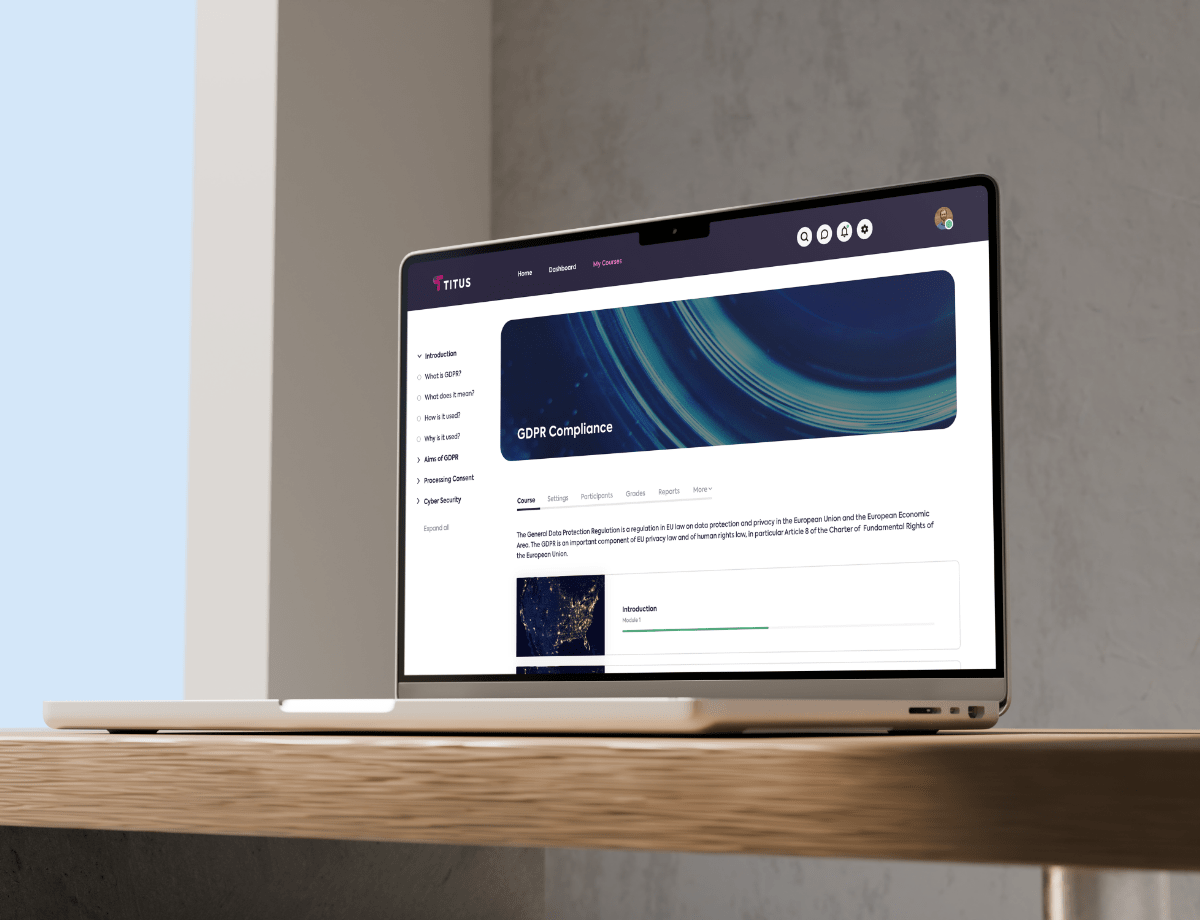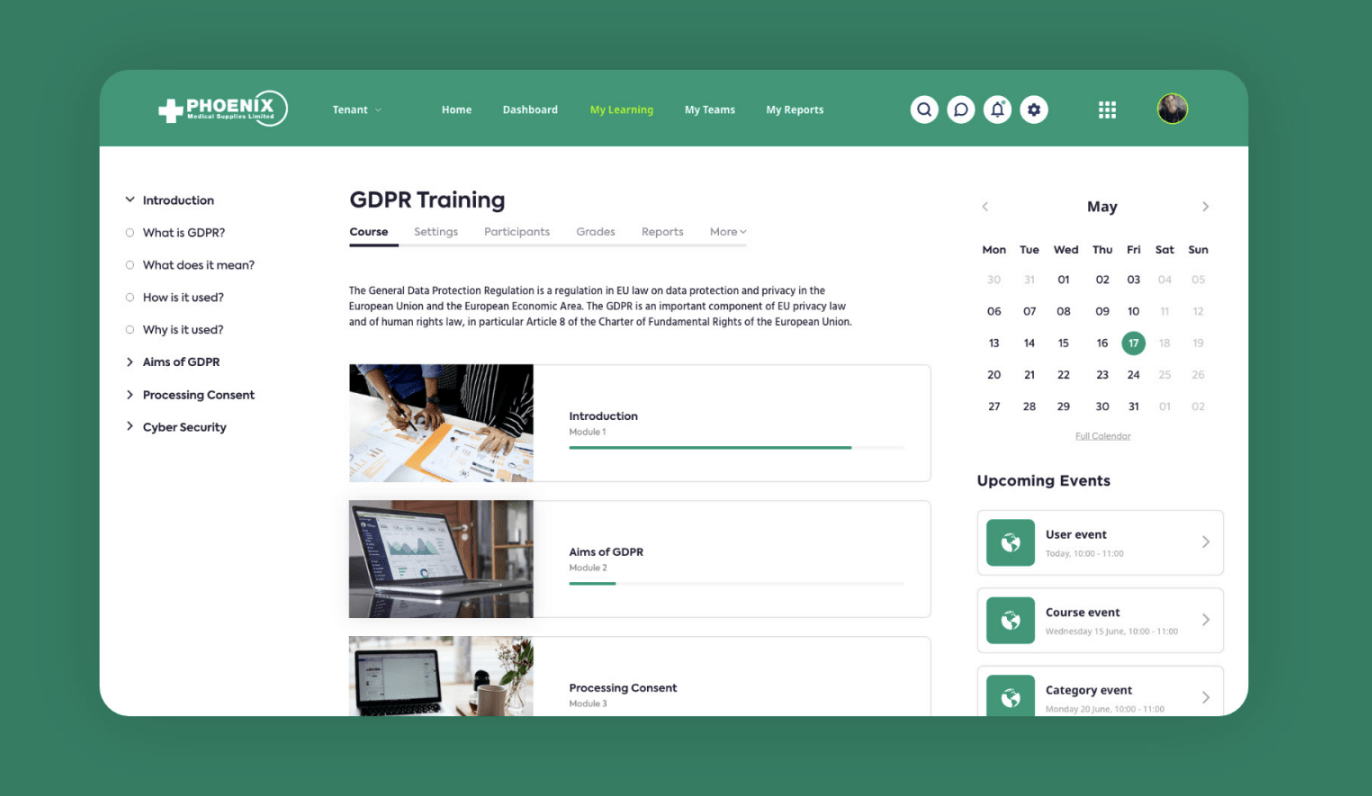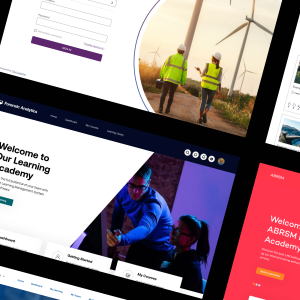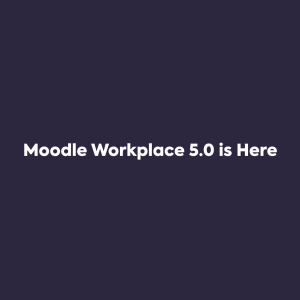In the past, compliance training was mainly associated with specialist roles — focused mainly on legal or regulatory compliance in fields such as banking, healthcare or insurance. That focus remains, but today, compliance as a discipline has much wider relevance.
Organisations across all sectors, and of all sizes, are recognising the value of structured compliance training in order to achieve a diverse range of goals — from employee wellbeing to inclusion, accessibility and brand perception.
To help you navigate the best way forward for your organisation, we’ve put together this comprehensive guide to the ins and outs of compliance training — why it matters, what it covers, the key challenges involved and the most effective tools available to streamline the process.
What is compliance training?
As we mentioned in the introduction, compliance training in modern organisations reaches beyond legal and regulatory obligations to encompass a wider range of policies and objectives. Any business goal requiring unified and consistent input from employees can be supported by effective compliance training. Some of the key areas where the organisations we work with are applying this include:

Regulatory compliance
Perhaps the most common use of compliance training is to ensure regulatory and legal obligations are fulfilled correctly, from anti-money laundering (AML) procedures in the financial sector, to care standards in the health sector.
Data protection and cybersecurity
From adherence to data processing legislation such as GDPR to embedding cybersecurity best practices to protect personal data and financial information, effective compliance training is crucial to digital security.
Anti-corruption and business ethics
Compliance training programmes are key to educating employees on important topics such as identifying and combating bribery, fraud and corruption, embedding ethical decision making and promoting integrity and ethical awareness.
Health and safety
Ensuring that employees understand and conform to health and safety policies and legislation is a crucial aspect of compliance training, helping to maintain a safe and secure workplace and minimise risk and liability.
Diversity and inclusion
D&I compliance training is a crucial ingredient in creating an inclusive workplace, eliminating discrimination and promoting positive cultural and behavioural change — fostering an environment where all employees can thrive.
Accessibility
Training programmes on accessibility and implementation help to ensure that an organisation’s products and services comply with relevant disability legislation and are available to all users, regardless of differing access methods or requirements.
Why compliance training is important
In essence, compliance training is the tool that organisations use to align policy and behaviour — ensuring as close a relationship as possible between how they say they will act, and how that translates to their real-world actions. How well they achieve that has a direct impact on people, processes, perceptions, and more.
Risk mitigation
Traditionally, the primary role of compliance training has been preventative — aimed at mitigating business risks which arise as a result of legal or regulatory non-compliance or potential malpractice. By ensuring employees operate within the relevant guidelines or standards for a specific industry, organisations can avoid penalties or sanctions.
Employee well-being
The effects of compliance on employee well-being encompass physical aspects such as health and safety, as well as the mental and emotional aspects addressed by diversity, inclusion and accessibility policies, among others. Effective compliance training in these areas helps ensure a safe and secure workplace with equality of opportunity for all.
Real-world impact
Comprehensive compliance training is vital in empowering employees to make informed and confident decisions that have a real-world impact — whether that’s addressing instances of discrimination, fraud or unethical behaviour, managing difficult relationships with stakeholders, selecting the right marketing tactics or making the right judgement call on a product development question.
Reputation management
Compliance also has a direct effect on organisational reputation — not only in avoiding the negative publicity associated with regulatory breaches but in building positive brand perception through consistent application of policy in areas such as inclusion, accessibility and sustainability.
The challenges you could face with compliance training
Research from KPMG reveals that while 94% of organisations report that compliance requirements are embedded within their policies, procedures or codes of conduct, only 29% assess compliance on an ongoing basis.
Effective compliance training programmes are needed to bridge this gap, however, successfully implementing such programmes comes with a range of challenges.
Maintaining engagement
As with all areas of L&D, if employees are not suitably motivated and engaged, then effective compliance training becomes impossible. The key challenge for training designers here is to ensure that resources, courses and assessments are tailored to employees’ roles and objectives — ensuring they can clearly see the value of compliance training, not only to overall business objectives but to their own professional development and career progression.
Lack of knowledge retention
One of the weaknesses of traditional compliance training models is the length of time between interactions, with little follow-up between quarterly or annual training sessions leading to a rapid drop-off in knowledge.
To address this, organisations need to ensure that compliance training is built into weekly or monthly L&D goals and that courses and assessments occur with greater frequency, breaking down training into discrete, digestible chunks.
Budgetary pressure
A 2023 report by Drata suggests that up to three-quarters of businesses cannot fully address compliance vulnerabilities due to limited budgets or resources.
It’s therefore crucial that organisations consider a range of options when it comes to training delivery — for example replacing expensive residential courses or classroom-based training with more flexible and cost-effective virtual options which continue to deliver value on the initial investment over a longer term.
How can an LMS help you manage compliance training?

Moving compliance training online — and delivering and tracking it via an LMS — can help organisations address many of these challenges. Specific features will vary according to the LMS platform you select, but broadly speaking, all platforms offer a similar set of advantages over more traditional instructor-led training.
More engaging courses
Engagement is a key challenge in compliance training — both in terms of ensuring employee involvement and maximising knowledge retention. Delivering compliance training via an LMS allows organisations to vary the content and structure of courses to suit a more diverse range of learning styles — including scenario-based exercises that encourage problem-solving, interactive video resources to simplify complex content, or gamification elements such as leaderboards and reward systems to boost participation.
Support for remote/hybrid models
With the rise of remote and hybrid working, bringing together teams for traditional group training can be impractical. By delivering compliance training through an LMS, employees can plan their own learning and complete objectives around their existing workflows, and managers can view and compare progress across distributed teams in a single interface.
Just-in-time learning
With relevant resources and training materials easily searchable and accessible from any device, using an LMS for compliance training allows employees to access microlearning at the point of necessity. Rather than relying on their memory of a previous training session, employees can check the validity of a decision or review a policy in real-time, leading to fewer compliance breaches
Reporting and analysis
A key advantage of LMS-based compliance training is the depth of reporting and analysis available. The LMS provides managers with a central location to track all compliance-related activities, allowing them to track progress and completion at a group or individual level. This makes it easier to measure the impact of training materials and evaluate the effectiveness of assessments — as well as pinpoint individuals who may require additional support.
Automated compliance tracking
Compliance training is not a one-off activity, it’s an ongoing process — in fact, in some industries, periodic training and testing is mandatory to maintain professional certification. Using an LMS to manage compliance training allows organisations to automate this process, notifying employees as the date for refresher training or skills audits approaches, directing them to the appropriate resources or assessments and awarding or updating certificates on completion.
The best compliance training LMS to choose
With a wide range of LMS and related solutions offering compliance-related features, investing in the most suitable platform for your organisation — and your employees — is key to ensuring effective compliance training over the long term.
As a certified Moodle and Totara Partner, we have extensive experience in helping organisations identify and implement the solution that best fits their goals — both for compliance training and for employee learning and development in general.
Moodle LMS - getting started with compliance training

As the world’s most widely used open-source learning management system, Moodle LMS is a popular choice for budget-conscious organisations who want a sophisticated platform with the flexibility to customise the interface and content to their specific needs and user preferences. While it has fewer specialist compliance features than Moodle Workplace or Totara TXP, it is highly extensible via a huge library of available plugins and integrations with HR, MIS and L&D systems.
Key time-saving features
- Highly customisable course structure, activity types and content delivery options
- Design custom compliance certificates and badges to reward learner achievements
- Implement specialised marking or grading rubrics based on compliance objectives
- Dynamic progression based on previous progress and existing knowledge.
Who’s it best suited to?
Moodle LMS is a good choice for organisations looking for a highly customisable and scalable LMS which gives them the opportunity to build in basic compliance training features — with relatively low setup and running costs. It may particularly suit those organisations that don’t align with traditional corporate structures and hierarchies.
Choose Moodle LMS if you’re looking for:
- A cost-effective and flexible LMS solution
- Extensive options for customisation
- User-friendly management and user interface
- Open source system with diverse plugins
Moodle Workplace - advanced compliance features built-in

As a business-focused LMS, Moodle Workplace incorporates a number of features specifically designed to streamline the delivery and management of compliance training. Completion tracking reports, automated recertification based on compliance validity cycles and detailed reporting and analysis are all available out of the box, as well as seamless integration with business-critical systems.
Key time-saving features
- Automated certification management alerts employees to take action
- Defined roles and hierarchies automatically create reporting lines
- Learning paths group key courses and content into programmes
- Drag and drop report builder to create custom compliance reports
Who’s it best suited to?
Moodle Workplace is ideal for organisations looking for a turnkey compliance training solution which maps onto their existing hierarchies, provides key tracking and management features out of the box and integrates readily with external compliance platforms such as OSHA, HIPAA, Fair Claims, and more via its library of APIs.
Choose Moodle Workplace if you’re looking for:
- Advanced compliance features as standard
- Out-of-the-box user-friendly theme
- Seamless integration with other systems
- High-performance reporting functionality
Totara TXP (Totara Learn, Totara Engage, Totara Perform) - highly integrated compliance training

Totara Talent Experience Platform comprises an LMS, Learning Experience Platform and Performance Management suite in one solution, with compliance training and tracking features available within each of the three elements — providing an organisation-wide overview of compliance paired with granular detail at an individual level.
Key time-saving features
- Social spaces such as workspaces and forums encourage P2P learning
- Nudge campaigns ensure compliance training remains front-of-mind
- Competency frameworks outline skills, knowledge and behavioural objectives
- Dynamic progression based on previous progress and existing knowledge.
Who’s it best suited to?
Totara TXP is a comprehensive solution ideal for organisations looking to build compliance into their culture, embedding it at every touchpoint from learning and development, to formal training and as part of performance reviews and evaluations.
Choose Totara TXP if you’re looking for:
- A comprehensive compliance solution in one platform
- Organisation-wide compliance overview with individual focus
- Social, collaborative and engaging environment and tools
- Structured coaching and development pathways
Are you weighing up the values of LMS versus LXP systems?
If you’re aiming to enhance your organisation’s compliance training efforts through an LMS or LXP — or you’ve already started the selection process and are finding it challenging to navigate — Titus can help.
We’ve provided learning platforms of both types to hundreds of the world’s leading brands and organisations across 30 countries, and as a Certified B Corp, our focus is always on delivering solutions that make a genuine positive impact.
Contact our team for an initial consultation — no strings attached — or a live demonstration of the current LMS and LXP offerings from Moodle and Totara.







